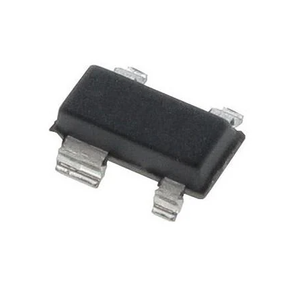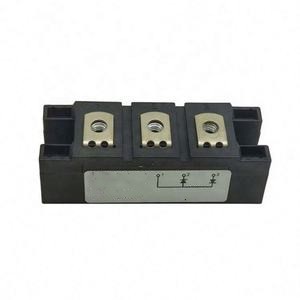Thyristors Online | High-Quality Power Semiconductors
The Mighty Thyristor: Power Pulse Generators Explained .
(What Do Thyristors Generate)
Ever question how massive makers start smoothly or how your home dimmer button functions its magic? Commonly hidden inside intricate electronics, a powerful little component called the thyristor plays a starring function. Consider it as a super-controlled switch for electricity, especially effective electricity. Let’s break open the mystery of these interesting power pulse generators.
1. What Exactly is a Thyristor? .
A thyristor is an unique kind of semiconductor gadget. It imitates a super-strong electric switch. But it’s not like your normal light switch you flip on and off whenever you desire. A thyristor is various. As soon as you turn it on, it normally stays on. It just switches off when the electrical energy streaming via it drops to absolutely no or you require it off in details ways. Picture a one-way door for electrical power that bangs closed just under particular conditions. Its most usual type is the Silicon Controlled Rectifier (SCR). People commonly utilize “thyristor” and “SCR” mutually. The key parts within are layers of special material. These layers create junctions that regulate the substantial circulation of power. It’s created to handle high voltages and big currents, making it excellent for managing major power.
2. Why Do We Need Thyristors? .
We require thyristors due to the fact that routine switches and transistors fight with really high power. Think of attempting to activate a massive manufacturing facility electric motor with a tiny switch. It would not work well. Thyristors resolve this problem. They can control massive amounts of electric power utilizing simply a tiny signal. This is called power amplification. Their capacity to lock on and stay carrying out is vital. This latching implies as soon as caused, the main power streams openly without needing the tiny trigger signal any longer. This makes circuits simpler and a lot more reputable. They are unbelievably tough. Thyristors deal with high voltages and currents without damaging. They are efficient. They don’t squander much power as warm when completely on or completely off. This combination of power handling, dependability, and efficiency makes them vital for controlling sturdy electric tons.
3. How Does a Thyristor In Fact Function? .
Consider a thyristor like a protected gateway for electrical power. Normally, eviction is closed tight. No electrical energy moves with it. This is the “off” state. To open up eviction, you need a certain trick. This secret is a little electric pulse put on its “gateway” terminal. This pulse triggers the thyristor. When caused, eviction bangs vast open. Electrical power rushes with the primary terminals (anode to cathode). Now comes the special component: the locking. Even if you remove the secret (eviction pulse), the gate remains vast open. The electrical power maintains streaming freely. The thyristor remains “on”. Just how do you turn it off? You can’t simply send out an additional signal to eviction. You have to interrupt the primary power circulation. This usually suggests decreasing the current moving through it to no. You can do this by turning off the main source of power, or by briefly forcing the present in reverse. This resets the device. It returns to its blocking state, all set for the next trigger pulse. This easy trigger-and-latch device is the heart of its power control magic.
4. Thyristor Applications: Powering the Modern Globe .
Thyristors are anywhere you require to manage big quantities of power effectively. Look around your home. That smooth dimming of your lights? Thyristors manage the power flow to create that impact. Electric hand tools with variable rate? Thyristors control the electric motor rate. Larger usages occur in sector and infrastructure. Managing the speed of massive electric motors in manufacturing facilities or conveyor belts depends greatly on thyristors. Battery chargers, specifically for big batteries, utilize them to thoroughly handle the charging present. Power supplies for industrial tools usually utilize thyristors for law. One massive application is High-Voltage Direct Current (HVDC) transmission. This is exactly how we send electrical power over exceptionally fars away with marginal losses. Thyristor valves serve as the super-fast buttons transforming AC power to DC for transmission and back once more. They take care of the immense power flowing through these cables. Motor controllers, heating controls, uninterruptible power materials (UPS), and even some welding devices all depend on the robust power handling of thyristors.
5. Thyristor FAQs: Your Burning Questions Responded To .
Do thyristors create electricity themselves? No. Thyristors do not develop power. They are controllers. They take care of the circulation of existing electric power. They change it on and off or manage how much power gets supplied to a load.
Why do they get hot? When switching on or off, or otherwise fully carrying out, thyristors generate warmth. This is power lost as warm. Good heat sinks are essential to maintain them cool down and stop failing. When completely on, they are efficient and create less warm.
Are thyristors still utilized with modern-day electronic devices? Yes! While transistors take care of low-power jobs, thyristors continue to be champs for really high power applications. HVDC, big motor drives, and sturdy commercial controls still greatly rely upon them. Newer kinds like GTOs and IGBTs exist, however standard thyristors (SCRs) are frequently one of the most affordable service for ultra-high power.
Exactly how huge are they? Size varies enormously. Tiny thyristors for appliances might be the size of a coin. Large thyristors made use of in HVDC terminals can be as large as a dinner plate! Size depends totally on the power they require to deal with.
(What Do Thyristors Generate)
What’s the difference between a thyristor and a transistor? Both are semiconductor buttons. Key differences: Transistors can be turned on and off by a control signal at their base/gate. Thyristors lock on with a gateway pulse yet need the major existing to be interrupted to turn off. Thyristors usually take care of much higher power degrees than private transistors. Transistors are much better for fast, repeated switching; thyristors excel at managing big, constant power streams as soon as caused.


